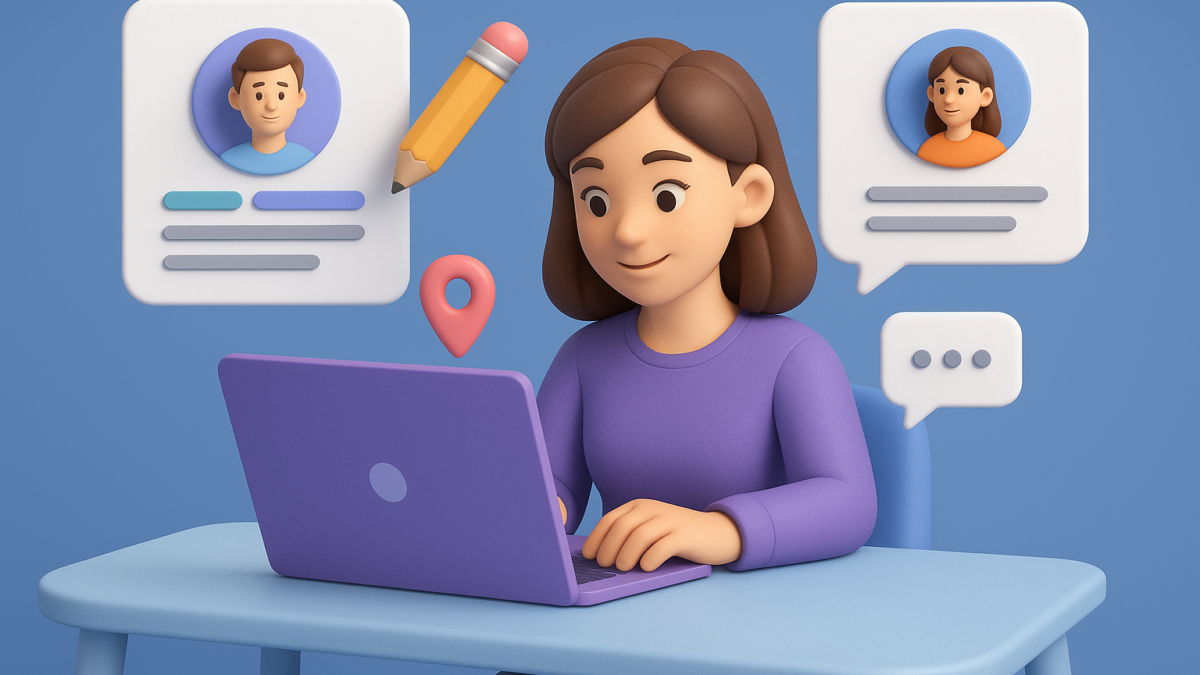AI Tools for Personalized Job Search, Writing & Interview Practice (2025)
Table of Contents
The job market in 2025 is more competitive than ever. With rapid changes in technology, remote hiring trends, and the rise of gig work, job seekers need every advantage they can get. Enter AI-powered tools—transforming how candidates search for jobs, write resumes, and prepare for interviews.
From personalized job recommendations to real-time mock interviews, AI is no longer just a recruiter’s tool—it’s becoming a job seeker’s secret weapon. This blog explores how AI tools are reshaping the entire job search process in 2025.
The Rise of AI in Job Search
In the past, finding a job meant manually scanning listings, customizing resumes, and rehearsing interview answers with friends. Today, AI-driven platforms automate and personalize much of this process.
Why It Matters:
- Recruiters use AI to filter resumes faster.
- Companies rely on AI for skill-matching candidates.
- Job seekers adopt AI to stay competitive and save time.
In short, if you’re not leveraging AI in your job hunt, you’re already a step behind.
AI Tools for Personalized Job Search
1. Smart Job Matching
AI-driven job boards and apps analyze your skills, work history, and career goals to suggest roles tailored to you. Unlike generic job boards, these platforms use algorithms that match you with opportunities you might miss otherwise.
- Example: Tools like LinkedIn’s AI job matching or niche platforms for tech, finance, or healthcare.
Benefit: Less time scrolling, more time applying to roles that truly fit.
2. Resume & Cover Letter Generators
Generic resumes are a thing of the past. AI writing assistants now create customized resumes and cover letters tailored to each job description.
- Platforms scan a job posting, highlight keywords, and reformat your resume to increase ATS (Applicant Tracking System) compatibility.
- Cover letters can be crafted in seconds, with tone and style adapted to different industries.
Benefit: Higher chances of making it past automated filters and catching a recruiter’s attention.
3. Skill Gap Analysis & Upskilling Suggestions
Some AI platforms go beyond applications. They analyze the skills listed in your target jobs versus what’s on your profile, then suggest courses or certifications to bridge the gap.
- For example, if 60% of marketing manager jobs in your area demand Google Analytics 4 certification, the AI tool will recommend training resources.
Benefit: Stay competitive and future-proof your career.
AI for Writing: From Resumes to Professional Profiles
AI writing tools are no longer just about grammar correction. They now help candidates craft compelling personal brands across resumes, LinkedIn profiles, and portfolios.
Key Features:
- Tone adjustment: Professional, casual, or persuasive depending on context.
- Keyword optimization: Aligns with recruiter search terms.
- Portfolio building: AI helps structure case studies, project summaries, or thought-leadership posts.
Why It Works: Recruiters don’t just want skills—they want clear communicators. AI ensures your professional documents look polished and stand out.
AI-Powered Interview Practice
The most stressful part of the job search? The interview. Luckily, AI tools now provide real-time coaching and simulations that mimic real-world interviews.
1. Mock Interviews with Feedback
AI-powered platforms simulate interview questions tailored to the job you’re applying for. Using speech recognition and natural language processing, they analyze:
- Tone of voice.
- Word choice.
- Clarity and confidence.
You receive instant feedback on how to improve, from avoiding filler words to structuring better answers.
2. Behavioral Question Training
Tools can guide you through the STAR method (Situation, Task, Action, Result) for answering tough questions.
3. Video Interview Prep
Since remote video interviews are now common, AI tools evaluate your eye contact, posture, and background distractions.
Benefit: Practicing with AI reduces nerves and builds confidence for the real thing.
Benefits of AI in the Job Search Process
- Efficiency: Apply to more roles in less time.
- Personalization: Tailored resumes, recommendations, and prep strategies.
- Accessibility: Affordable coaching compared to expensive career consultants.
- Confidence Boost: Real-time practice makes you more prepared than traditional methods.
Challenges & Considerations
Of course, AI isn’t perfect. Some challenges remain:
- Bias Risks: AI systems may unintentionally mirror hiring biases from historical data.
- Over-Reliance: Candidates must still bring authenticity and human touch.
- Privacy Concerns: Sharing personal career data with AI platforms requires caution.
The best approach? Use AI as a career co-pilot, not a replacement for human effort.
Looking Ahead: The Future of AI in Job Search
By 2030, job search platforms could integrate with autonomous career agents—AI assistants that apply to jobs, schedule interviews, and negotiate offers on your behalf. For now, tools in 2025 are already powerful enough to give job seekers an edge over those relying on traditional methods.
Conclusion
In 2025, AI tools are redefining the job search journey—from finding opportunities and writing resumes to practicing interviews with real-time feedback. They don’t just save time; they improve outcomes by helping candidates stand out in a competitive market.
If you’re entering the job market this year, remember: the smartest move isn’t just applying—it’s applying smarter with AI.
Expand your reach. Syndicate your content today and connect with verified B2B decision-makers.
See Also: AI-Generated Whitepapers: Can Machines Create Trustworthy B2B Content?





